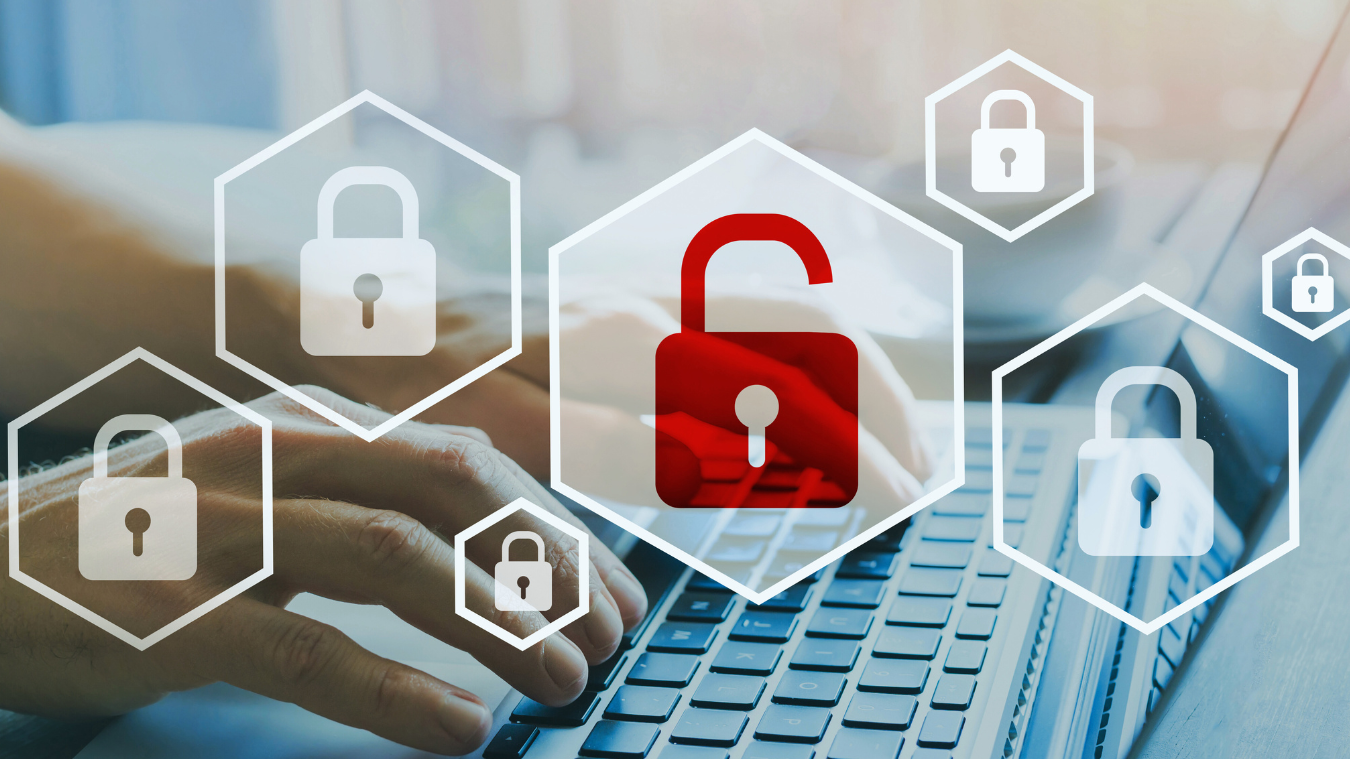Cybersecurity for Small Businesses: Best Practices With Your Remote Team

Running a small business in today's digital age can be incredibly rewarding. However, it also comes with its fair share of cybersecurity challenges, especially if you have a remote team. Cybersecurity is not just for large corporations; it's also a critical concern for solopreneurs and small business owners. Here are some practical tips and tools to help safeguard your business, whether you're a solo business warrior or working with a small team.
Protecting Your Business from Cyberattacks
EDUCATE YOURSELF AND YOUR TEAM
Start with the basics and educate yourself and your team about cybersecurity risks and best practices. While it may seem daunting, plenty of free resources are available online to help you get started. Understanding the threat landscape is the first step in protecting your business.
USE STRONG PASSWORDS AND MULTI-FACTOR AUTHENTICATION
Your passwords are the first line of defense against cyberattacks. Use strong, unique passwords for all accounts, and consider a password manager to keep track of them. Enable MFA wherever possible – it's a low-cost way to add an extra layer of security to your accounts.
REGULARLY UPDATE YOUR SOFTWARE
Software updates often include security patches. Make sure your operating system, applications, and plugins are regularly updated to protect against known vulnerabilities.
SECURE YOUR WI-FI NETWORK
If you work from home or have remote team members, secure your Wi-Fi network with a strong password. Don't rely on default router passwords, a mistake many make! Change all default passwords to something unique.
BACKUP YOUR DATA
Regularly back up your business data to an external drive or cloud storage. That way, even if disaster strikes, your critical information remains safe.
USE ANTI-VIRUS SOFTWARE
Invest in a reputable antivirus or anti-malware program. Many free or low-cost options provide adequate protection for small businesses.
BE CAUTIOUS OF EMAILS AND LINKS
Phishing attacks often target small businesses. Train yourself and your team to recognize suspicious emails and avoid clicking on questionable links or downloading unknown attachments.
Secure Your Devices
Ensure that all devices used for work, including personal ones, have basic security measures like screen locks and up-to-date antivirus software. Even if your remote team members use their own devices, you can request they take precautions on behalf of the business.
Keep Personal and Business Accounts Separate
Avoid mixing personal and business accounts, especially emails. This minimizes the risk of personal data exposure affecting your business.
Regularly Monitor Financial Transactions
Stay vigilant about your business finances. Regularly check your accounts for any unauthorized transactions or unusual activities.
Limit Access
Only grant access to sensitive data and systems on a need-to-know basis and be cautious when giving permissions.
Implement a Firewall
Use a firewall to protect your network from unauthorized access. Many operating systems come with built-in firewalls.
Consider Cybersecurity Training for Your Team
Invest in cybersecurity training for your team members. Educated team members are your first line of defense.
Consult Professionals
Consider consulting with cybersecurity experts if you're still uncertain about your business's setup or if you need specialized assistance. A consultant can provide tailored advice for your unique business needs.
Delegating To A Virtual Assistant While Safeguarding Your Business
Embracing virtual assistants is a game-changer for small business owners seeking to supercharge productivity and efficiency. It's like having an extra set of capable hands, and it can work wonders for your operations. Yet, as with any innovation, it's essential to navigate the cybersecurity landscape confidently. Here's how to make the most of your virtual assistant's skills and talents while simultaneously ensuring your business stays secure:
Secure Communication
Use encrypted communication tools like Signal or WhatsApp. Your sensitive information will remain confidential, giving you peace of mind as you strategize and plan with your remote team members.
Collaboration Platforms
Embrace secure collaboration platforms such as Slack or Microsoft Teams. These tools allow you to control access and permissions, fostering seamless teamwork while protecting your digital assets.
VPN (Virtual Private Network)
Forge a secure path with a VPN, ensuring that your connections are encrypted and shielded. When you or other remote team members are accessing business resources remotely, when you've got a VPN connected, you're protected against cyber threats.
Clear Policies
Empower your remote team with clear cybersecurity policies. Your virtual workspace will remain secure if everyone knows the rules - from data handling to device security (like when to use that VPN).
Regular Check-Ins
Stay ahead of the curve by scheduling regular cybersecurity check-ins with your team. Like in all areas, communication is the key! By fostering awareness of the latest threats and best practices, you create a united front against cyber challenges.
How A Virtual Assistant Can Enhance Your Cybersecurity
Your virtual assistant can do more than handle tasks while handling them with cybersecurity in mind. They can also play a pivotal role in bolstering your cybersecurity efforts. You can task your Freedom Maker virtual assistant to:
Recommend Cybersecurity Tools: Leverage your virtual assistant's research skills to find budget-friendly cybersecurity tools and software that can help safeguard your small business.
Implement Security Protocols:
Task your Freedom Maker with setting up and enforcing security protocols within your organization. They can ensure that everyone follows best practices.
Stay Informed: Your virtual assistant can keep you updated on the latest cybersecurity trends and news. They can help you stay proactive in the ever-evolving world of cyber threats.
With the right approach to cybersecurity and the support of a savvy virtual assistant, your small business can stay safe and thrive in the digital age!















